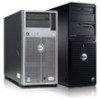Dell PowerEdge XL 5133-4 MXL 10/40GbE Switch IO Module FTOS Command Reference - Page 153
Maintenance Using TDR, TDR is useful for troubleshooting an interface that is not establishing a link
 |
View all Dell PowerEdge XL 5133-4 manuals
Add to My Manuals
Save this manual to your list of manuals |
Page 153 highlights
Maintenance Using TDR The time domain reflectometer (TDR) is supported on all Dell Force10 switch/routers. TDR is an assistance tool to resolve link issues that helps detect obvious open or short conditions within any of the four copper pairs. TDR sends a signal onto the physical cable and examines the reflection of the signal that returns. By examining the reflection, TDR is able to indicate whether there is a cable fault (when the cable is broken, becomes unterminated, or if a transceiver is unplugged). TDR is useful for troubleshooting an interface that is not establishing a link, that is, when the link is flapping or not coming up. Do not use TDR on an interface that is passing traffic. When a TDR test is run on a physical cable, it is important to shut down the port on the far end of the cable. Otherwise, it may lead to incorrect test results. Note: TDR is an intrusive test. Do not run TDR on a link that is up and passing traffic. To test the condition of cables on 100/1000/10000 BASE-T modules, following these steps using the tdr-cable-test command. Step Command Syntax 1 tdr-cable-test tengigabitethernet / Command Mode EXEC Privilege 2 show tdr tengigabitethernet / EXEC Privilege Usage To test for cable faults on the TenGigabitEthernet cable. • Between two ports, you must not start the test on both ends of the cable. • Enable the interface before starting the test. • The port must be enabled to run the test or the test prints an error message. Displays TDR test results. Interfaces | 139















